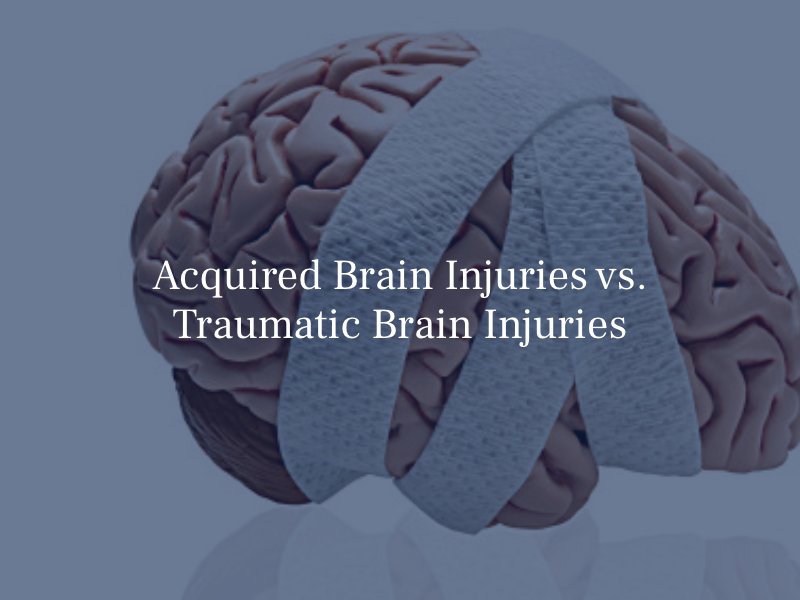Acquired Brain Injuries vs. Traumatic Brain Injuries
October 31, 2022 Posted In Brain Injuries
Any damage that occurs to the brain after birth is called an “Acquired Brain Injury” (ABI). A traumatic brain injury (TBI) is a type of ABI, along with a non-traumatic brain injury. If your loved on has suffered from any type of brain injury, don’t hesitate to reach out to our Riverside traumatic brain injury team.

Types of Acquired Brain Injuries
- Traumatic Brain Injury (TBI): A type of ABI caused by a sudden blow to the head, such as a fall, car accident, act of violence, etc. TBIs occur due to events outside of the body.
- Non-Traumatic Brain Injury: A type of ABI caused by a medical condition, such as a stroke or brain tumor. They occur due to events that happen inside the body.
Leading Causes of Acquired Brain Injuries
ABIs are most commonly caused by the following:
Traumatic Brain Injuries
- Falls: Falls are the leading cause of TBIs. Older adults and young children are at a high risk of suffering a TBI in a fall. Some examples of fall accidents include a slip and fall on a wet surface, falling down stairs, off a ladder, from a bed, etc.
- Being Struck by or Against an Object: The second most common cause of TBIs is being struck by or against an object. For example, when a falling object hits a person’s head. These accidents are common in the workplace, such as construction sites.
- Motor Vehicle Accidents: The impact from a collision often causes TBIs because of the jerking motion or an individual’s head striking a solid surface.
- Sports Injuries: In high-impact sports, such as football, soccer, boxing, baseball, lacrosse, skateboarding, hockey, etc., athletes are more susceptible to concussions and severe TBIs.
- Acts of Violence: This includes domestic violence, assault, child abuse, gunshot wounds, shaken baby syndrome, etc.
Non-Traumatic Brain Injuries
Some common types of non-traumatic acquired brain injury include:
- Anoxic or Hypoxic Injuries: When blood flow to the brain is interrupted, depriving it of oxygen. For example, from drowning or choking.
- Infections: Such as meningitis.
- Seizures: Prolonged seizures can kill brain cells and cause other damage.
- Strokes and Aneurysms: A stroke is caused by a ruptured blood vessel in the brain or when the blood supply to the brain has been blocked. A brain aneurysm is a bulge or ballooning in a blood vessel in the brain, and when it leaks or ruptures, it causes bleeding in the brain.
- Brain Tumors: Growing tumors place pressure on other brain cells and structures.
- Encephalitis: Inflammation of the active tissues of the brain caused by an infection or autoimmune response.
Acquired Brain Injury Symptoms
Symptoms can include any combination of the following:
- Difficulty staying awake
- Slurred speech
- Passing out (for a brief period after the injury incident)
- Unrelenting headaches
- Dizziness
- Nausea and vomiting
- Seizures
- Clear fluid coming from ears and nose
- Challenges understanding others
- Problems expressing oneself
- Memory loss or amnesia
- Sluggishness
- Moodiness, anxiety, irritability
ABIs can have vastly different symptoms depending on the severity of the injury, what part of the brain was affected, and many other factors. However, when the brain is damaged, some part of a person’s life is adversely impacted since the brain controls every aspect of human life: physical, intellectual, behavioral, social, and emotional.